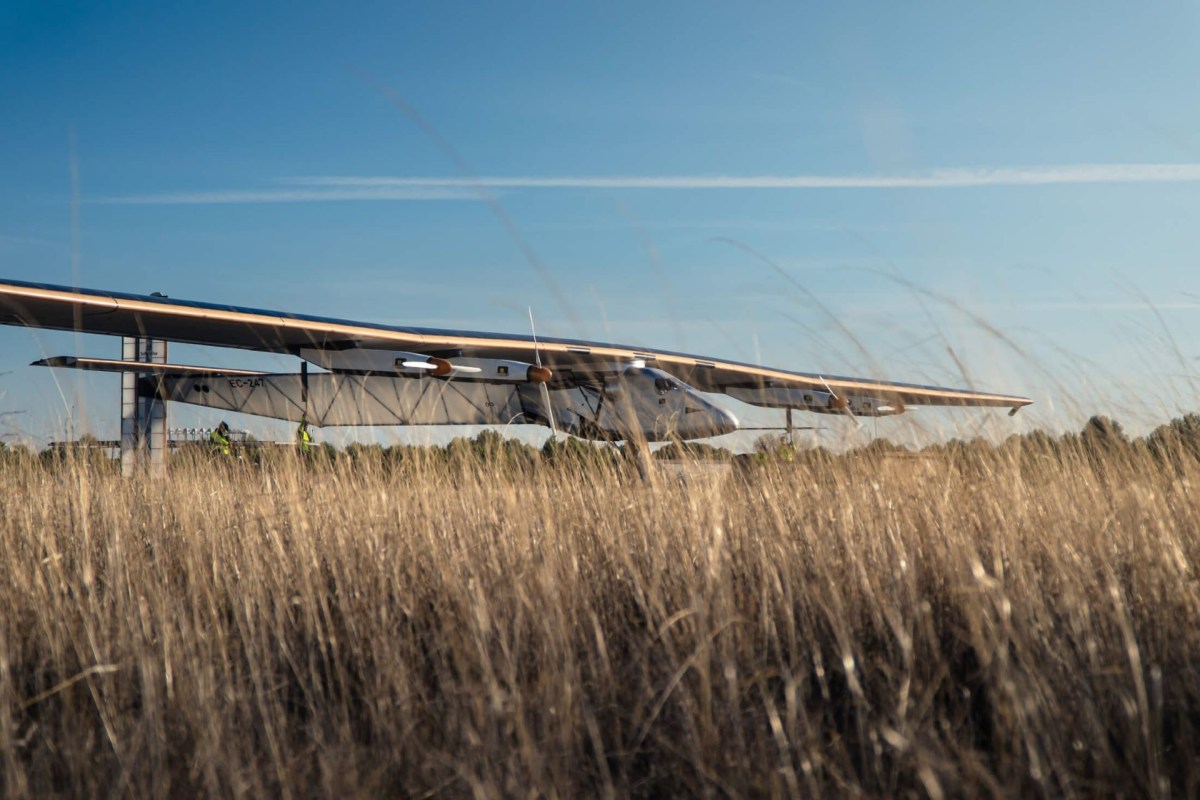There's a new kid in town in the world of autonomous technology: self-piloting solar planes.
A plane called the Skydweller Aero recently flew its first ever completely autonomous flight from Albacete Air Base in Spain — meaning the aircraft took off, flew, and landed with zero human input.
This aircraft is a reimagined version of the first solar-powered, fixed-wing airplane to fly around the world, the Solar Impulse 2. While the Solar Impulse 2 did so –– an undoubtedly impressive feat –– in 2016, it was not autonomous.
Skydweller Aero bought the Solar Impulse 2 in 2019 and has been working since to test a fully autonomous flight system.
"In the initial validation flight tests, the system flew the aircraft autonomously from takeoff to landing without pilot input, although there was a safety pilot on board," the company told Axios.
Because of its access to free, abundant solar energy, the aircraft can stay in flight for months at a time. It stores energy both through its batteries and by changing its altitude.
Skydweller also implements weather models to predict environmental conditions to avoid weather that could be problematic.

Now that the aircraft has completed its first successful fully autonomous flight, the company is working with the United States Navy to solidify long-endurance autonomous solar flight and being offered as a concept for military intelligence applications as well as for commercial purposes.
With its clean energy usage and ability to maintain its position in the air for extended periods of time, the Skydweller Aero has the potential to reduce air pollution from military and commercial aviation.
Since traditional airplanes burn dirty energy, which releases planet-heating air pollution and causes warming due to nitrogen oxide, vapor trails, and cloud formation triggered by aircraft altitude, their use has long been seen as unsustainable.
But the Skydweller Aero reduces some of this need, and if the technology could be someday used more widely, it has massive potential.
Join our free newsletter for weekly updates on the coolest innovations improving our lives and saving our planet.









